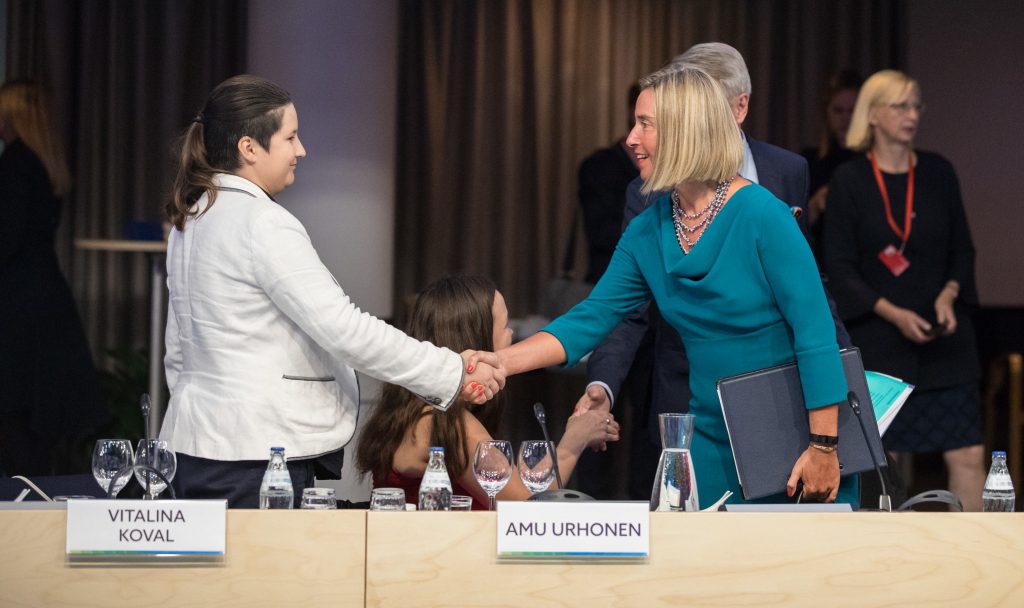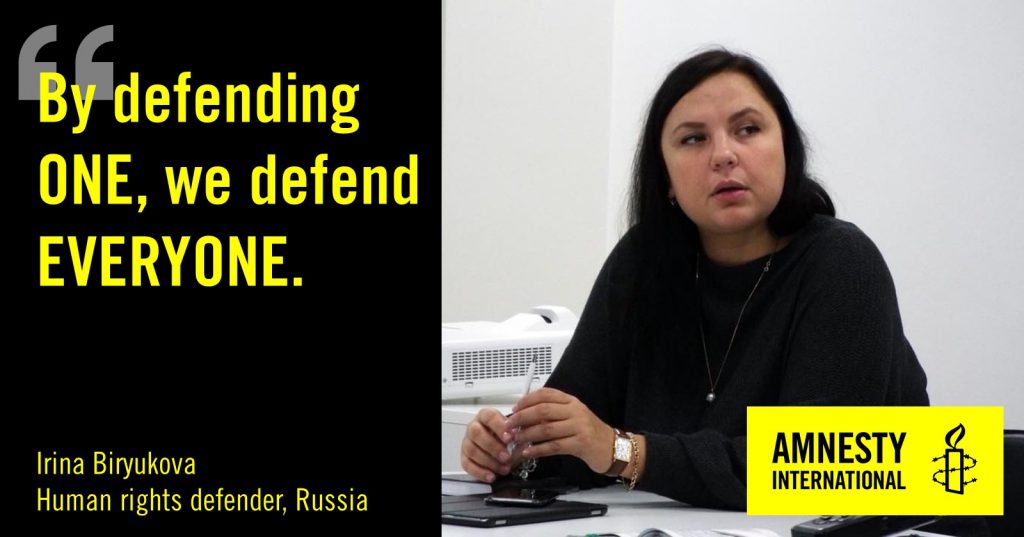Choose another language to view report
IS THE EU DEFENDING THE DEFENDERS?
Human rights defenders face mounting deadly threats and attacks for defending the rights of all of us. At this crucial and challenging moment for defenders we ask: is the European Union (EU) defending the defenders?
Human rights defenders (HRDs) are people – journalists, lawyers, health professionals, teachers and activists – who defend the rights of all of us. They face many impediments and sometimes even serious danger for the work they do. The EU has committed to support HRDs and has a responsibility to them. But Amnesty International’s research shows that it is falling short on its promises.
Amnesty International has looked into how the EU and its member states delivered on the ‘EU HRD guidelines’ in Burundi, China, Honduras, Russia and Saudi Arabia, where HRDs face serious challenges.
Our report identifies many instances where the EU and member states adopted innovative approaches to support HRDs, enabling them to do their work safely and ensuring that those who threaten and attack HRDs know that they cannot do so with impunity.
However, inconsistent implementation of the EU’s policy means that they are falling short on their commitment to support and protect HRDs.
Is the EU’s HRD protection strategic enough?
In the face of spiralling repression, HRDs in all countries underlined the difference that EU support can make to their work and lives. However, this support appears to lack overall strategy and consistency.
Amnesty International identified clear disparities in EU action between and within the different countries analysed. For instance, robust EU public messages supporting HRDs in China, contrasted with limited or weak public support for HRDs in Saudi Arabia.
Too often EU action is primarily reactive with little follow up and their decision to act depends on so many factors that it becomes unclear when HRDs can rely on EU support.
Is the EU’s work visible enough?
The report identified a variety of actions and ways in which the EU can support HRDs, but these are often not visible. At the same time, we see a lack of public statements in certain countries, or statements which failed to reflect the gravity of the situation facing HRDs.
The EU’s public actions and commitments to HRDs do not always reach their target audience. For example, EU statements on HRDs are often not translated into local languages.
Is the EU’s work innovative enough?
While a number of individual innovative actions were identified in the report, these need to be anchored in a broader, strategic vision of how the EU can best support and protect HRDs in practice.
Continued pressure that is direct, clear and public is very important. Despite little change, it is dangerous not to continue to pressure the authorities on the repression of HRDs, and the Saudi government may be more empowered in its repression.
Saudi Arabian HRD
Every day human rights defenders work to defend all of our rights. Click here to read Amnesty International’s assessment of how the EU is supporting them in five countries.
WHAT CAN THE EU DO TO BETTER SUPPORT HRDS?
We are at a crucial and challenging moment for human rights globally. Through our research, Amnesty International has identified practical ways in which the EU can better support HRDs.
Bring EU Commitments on HRDs to the Highest Level
EU Foreign Ministers should affirm their commitment to promote and protect HRDs at all levels of their foreign policy. Annual Foreign Affairs Council Conclusions could set out a global strategy for EU action on HRDs.
Be More Strategic and Innovative
Embed innovative practices within this global strategy.
Be ready for new and emerging threats such as surveillance and harassment on social media.
Any strategy should include ways to support HRDs with intersectional concerns such as Women Human Rights Defenders (WHRDs), LGBTI defenders, Indigenous HRDs and HRDs working on land/ environmental/ territory or business and human rights.
Improve the visibility & the accessibility of EU action
The EU should prioritize the impact and reach of its actions to support HRDs, including through media and targeted social media.
The EU should develop a global public communications strategy on HRDs.
This should set out guidance and benchmarks on when, how and whom to communicate with .
The EU and its member states need a more strategic and visible approach to have impact by supporting and protecting people at risk for defending human rights and their crucial work. They should begin by listening to the HRD’s concerns.
Eve Geddie, Director of the Amnesty International EU Office

Publicly supporting women who defend human rights is one way in which the EU can show countries that abuses of human rights defenders will not go unnoticed. Ukranian LGBTI rights activist Vitalina Koval met the EU’s High Representative for Foreign Policy, Federica Mogherini when she was invited with other WHRDs to join a meeting with EU Foreign Ministers.
My organisation engages directly with the EU and we are grateful for its vital support, both financial and technical, for HRDs in the east and Horn of Africa sub region. But I have also seen that the EU is clearly in a double bind when business or other vital interests are concerned.
Memory Bandera Rwampwanyi, Director of Programs and Administration, Defend Defenders, Uganda

SUPPORTING DEFENDERS EMPOWERS THEM TO FEEL SAFER
Choose another language to view report

